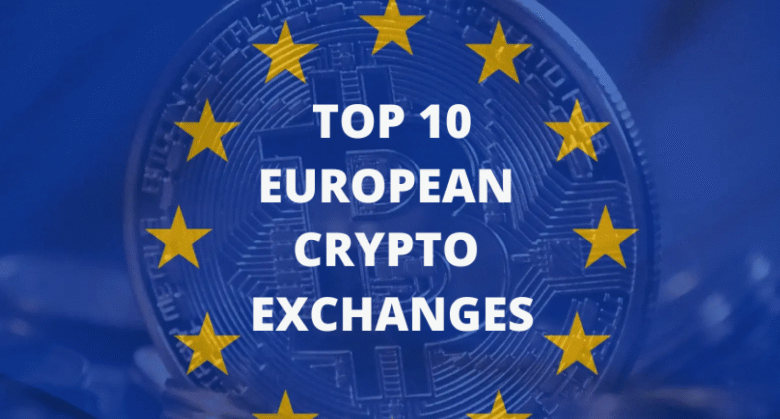Top Crypto Insurance Providers in the UK and Europe 2025

The cryptocurrency insurance landscape in the UK and Europe has undergone a remarkable transformation as digital assets have evolved from experimental technology to mainstream financial instruments. However, As we progress through 2025, the demand for comprehensive crypto asset protection has reached unprecedented levels, driven by institutional adoption, regulatory clarity, and the increasing recognition of digital currencies as legitimate investment vehicles.
European crypto insurance has emerged as a critical component of the broader digital asset ecosystem, providing essential safeguards against the unique risks associated with cryptocurrency ownership and trading. Unlike traditional financial assets, cryptocurrencies face distinct challenges including. However, smart contract vulnerabilities, exchange hacks, private key theft, and regulatory uncertainties that require specialized insurance solutions.
The UK crypto insurance market has positioned itself as a global leader in blockchain insurance innovation, with London’s insurance market leveraging centuries of expertise in marine and commercial insurance to address the complexities of digital assets. Major Lloyd’s of London syndicates have developed sophisticated cryptocurrency coverage products that protect everything from individual wallet holdings to large-scale institutional crypto investments.
European Union member states have embraced the Markets in Crypto Assets (MiCA) regulation, creating a harmonized framework that has encouraged crypto insurance companies to develop standardized products across multiple jurisdictions. This regulatory clarity has fostered innovation in digital asset insurance, with providers offering increasingly comprehensive coverage options that address both retail and institutional needs.
The evolution of DeFi insurance represents one of the most significant developments in the crypto protection space. As decentralized finance protocols have attracted billions in total value locked (TVL), specialized insurance products have emerged to protect users against smart contract failures, oracle manipulation, and governance attacks. These innovative solutions demonstrate how crypto insurance providers are adapting to the rapidly changing landscape of digital finance.
Custody insurance has become particularly crucial as institutional investors enter the cryptocurrency market. Major crypto custodians now require comprehensive insurance coverage to meet regulatory requirements and provide confidence to their clients. This has driven the development of sophisticated cold storage insurance products and multi-signature wallet protection that can cover losses up to hundreds of millions of dollars.
The integration of artificial intelligence and blockchain analytics into crypto insurance underwriting has revolutionized risk assessment and claims processing. Modern cryptocurrency insurance providers utilize real-time monitoring systems that can detect suspicious activities, assess wallet security levels, and provide dynamic pricing based on actual risk exposure rather than traditional actuarial models.
This comprehensive guide examines the leading crypto insurance providers operating in the UK and Europe throughout 2025, analyzing their coverage options, pricing structures, and unique features that distinguish them in this competitive marketplace.
Crypto Insurance and Its Importance in 2025
Cryptocurrency insurance serves as a critical risk management tool that protects digital asset holders against various forms of loss that are unique to the crypto ecosystem. Unlike traditional insurance products, crypto asset protection must address technological risks, cybersecurity threats, and operational hazards that don’t exist in conventional financial markets.
Evolution of Digital Asset Insurance
The crypto insurance industry has matured significantly since its inception, evolving from basic exchange coverage to comprehensive protection that encompasses DeFi protocols, NFT collections, staking rewards, and cross-chain bridge operations. Early cryptocurrency insurance products primarily focused on hot wallet breaches and exchange hacks, but modern coverage extends to sophisticated risks including flash loan attacks, governance token manipulation, and validator slashing penalties.
European crypto insurance providers have led innovation in developing parametric insurance products that utilize smart contracts for automated claims processing. These solutions can trigger immediate payouts when predefined conditions are met, such as blockchain reorganizations or protocol governance changes, without requiring lengthy claims investigations.
Types of Crypto Insurance Coverage
Comprehensive crypto insurance encompasses multiple coverage categories designed to address the diverse risks facing digital asset holders. Custody insurance protects against losses from private key theft, hardware wallet failures, and multi-signature compromises. Exchange insurance covers user funds held on trading platforms against hacks, insider theft, and operational failures.
DeFi insurance represents a rapidly growing segment that protects liquidity providers, yield farmers, and stakers against smart contract vulnerabilities, oracle failures, and protocol governance attacks. This coverage type requires sophisticated risk modeling that considers code audits, TVL fluctuations, and community governance structures.
Professional liability insurance for crypto service providers covers losses arising from errors, omissions, or negligent acts in providing cryptocurrency-related services. This includes coverage for crypto advisors, custodians, exchanges, and wallet providers against client losses due to professional mistakes.
Top Crypto Insurance Providers in the United Kingdom

Lloyd’s of London Syndicates – Premier Blockchain Insurance
Lloyd’s of London maintains its position as the global leader in crypto insurance, with multiple syndicates offering specialized digital asset coverage. The market’s centuries of experience in marine and aviation insurance translates exceptionally well to cryptocurrency risks, providing sophisticated risk assessment and claims handling capabilities.
Prominent Lloyd’s syndicates including Beazley, CFC Underwriting, and Coalition have developed comprehensive crypto insurance products that cover everything from individual hardware wallets to institutional custody operations worth billions of dollars. These products benefit from Lloyd’s financial strength, global reach, and regulatory expertise.
Lloyd’s crypto insurance typically features higher coverage limits, faster claims processing, and global jurisdiction coverage that makes it particularly attractive to international crypto businesses. The market’s risk pooling mechanisms allow for coverage of extremely large exposures that individual insurers couldn’t handle independently.
Coincover – Specialized Crypto Protection
Coincover has established itself as the UK’s leading dedicated crypto insurance provider, offering consumer-focused products that protect individual investors and small businesses. The company’s partnership approach with major crypto exchanges and wallet providers ensures seamless integration of insurance protection into existing platforms.
The company’s flagship product provides comprehensive protection against private key theft, SIM swapping attacks, phishing scams, and exchange hacks. Coincover’s claims process is specifically designed for cryptocurrency losses, with specialized investigators who understand blockchain forensics and digital asset recovery.
Coincover’s innovation in proof-of-loss procedures for cryptocurrency claims has set industry standards, utilizing blockchain analysis tools and cryptographic proofs to streamline the claims verification process. Their educational approach helps policyholders understand and mitigate risks while maintaining comprehensive protection.
Evertas – Institutional Crypto Insurance
Evertas focuses on providing enterprise-grade crypto insurance solutions for institutional investors, crypto funds, and large-scale operations. However, products are designed to meet the stringent requirements of pension funds, family offices, and investment managers who require comprehensive risk management for their digital asset exposures.
Evertas offers modular coverage that can be customized to specific institutional needs, including custody insurance, key person coverage, regulatory coverage, and business interruption protection. Their risk assessment process incorporates detailed security audits, operational reviews, and ongoing monitoring to ensure appropriate coverage levels.
The company’s Claims expertise in handling large-scale crypto losses includes forensic accounting, blockchain analysis, and international asset recovery capabilities that are essential for institutional-level claims. Evertas works closely with regulators and law enforcement to maximize recovery opportunities.
Leading European Crypto Insurance Companies
Munich Re – Global Crypto Reinsurance Leader
Munich Re has emerged as Europe’s leading crypto reinsurance provider. However, supporting primary insurers across the continent with capacity, expertise, and risk modeling capabilities. The company’s extensive research into cryptocurrency risks has produced sophisticated actuarial models that enable accurate pricing of digital asset coverage.
Munich Re’s crypto insurance products benefit from the company’s global presence, financial strength, and centuries of insurance expertise. Their reinsurance solutions enable smaller insurers to offer comprehensive crypto coverage while managing their risk exposure through professional reinsurance arrangements.
The company’s innovation in parametric insurance for DeFi protocols represents a significant advancement in automated claims processing. These products utilize smart contracts and oracle data to provide immediate payouts when trigger events occur, reducing claims processing time from months to minutes.
Swiss Re – Innovative Digital Asset Solutions
Swiss Re has developed cutting-edge crypto insurance solutions. However, that leverage artificial intelligence, machine learning, and real-time risk monitoring to provide dynamic coverage that adapts to changing risk profiles. Their Swiss innovation in financial technology extends naturally to cryptocurrency insurance.
The company’s parametric insurance products for staking operations provide automated protection against slashing penalties, downtime losses, and validator failures. These solutions are particularly valuable for institutional staking operations that require predictable risk management.
Swiss Re’s research initiatives in quantum computing. However, cryptographic security position them at the forefront of future crypto insurance needs. Their forward-looking approach ensures coverage products evolve with technological developments and emerging threats.
Axa Group – Comprehensive European Coverage
Axa Group offers crypto insurance products across multiple European markets, providing consistent coverage standards and claims handling procedures. Their multi-jurisdictional approach is particularly valuable for crypto businesses operating across EU member states.
Axa’s integration of crypto insurance with traditional business insurance packages provides comprehensive protection for companies involved in cryptocurrency activities. This holistic approach ensures all aspects of business operations are protected, from cyber liability to professional indemnity.
The company’s investment in blockchain technology for claims processing and policy administration demonstrates their commitment to innovation in digital asset insurance. Axa’s pilot programs for automated claims processing using smart contracts show promising results for future efficiency improvements.
Allianz – Traditional Insurance Expertise
Allianz leverages its extensive European presence and traditional insurance expertise to provide reliable crypto insurance solutions across multiple markets. The company’s conservative approach to risk assessment and underwriting provides stability and predictability for long-term crypto insurance needs.
Allianz’s cyber insurance products have been adapted for cryptocurrency operations, providing comprehensive protection against cyber attacks, data breaches, and system failures that could result in crypto asset losses. Their incident response services include specialized crypto forensics and asset recovery capabilities.
The company’s partnership approach with established crypto businesses enables them to offer tailored coverage that addresses specific operational risks while maintaining competitive pricing through risk pooling and diversification strategies.
DeFi Insurance and Specialized Coverage
Nexus Mutual – Decentralise Insurance Protocol
Nexus Mutual represents the leading decentralized insurance solution for DeFi risks, operating as a mutual organization where members share risks and govern the protocol. The platform provides smart contract coverage for major DeFi protocols including Uniswap, Aave, Compound, and MakerDAO.
Coverage options include smart contract bugs, economic attacks, oracle failures, and governance attacks that could result in user fund losses. Nexus Mutual’s claims assessment process utilizes community voting and expert analysis to ensure fair and accurate claims decisions.
The protocol’s tokenized approach allows members to stake NXM tokens to provide coverage capacity while earning premium income and participating in governance. This innovative model aligns incentives between risk assessors, coverage providers, and policyholders.
InsurAce – Multi-Chain DeFi Protection
InsurAce provides comprehensive DeFi insurance across multiple blockchain networks including Ethereum, Binance Smart Chain, Polygon, and Avalanche. The platform’s cross-chain approach addresses the growing complexity of multi-chain DeFi operations.
Coverage products include smart contract vulnerability protection, stablecoin depeg insurance, custody coverage, and IDO protection for new token launches. InsurAce’s parametric insurance products provide automated payouts based on objective triggers such as protocol TVL declines or oracle price deviations.
The platform’s investment portfolio approach allows capital providers to earn yield from premium income while providing coverage capacity. This sustainable model ensures long-term availability of coverage capacity for DeFi risks.
Unslashed Finance – Institutional DeFi Insurance
Unslashed Finance focuses on institutional-grade DeFi insurance. However, that meets the rigorous requirements of traditional financial institutions entering the DeFi space. The platform provides comprehensive coverage for large-scale DeFi operations and institutional yield farming strategies.
Coverage areas include smart contract risks, bridge failures, validator risks, and governance token volatility that could impact institutional DeFi investments. Unslashed’s professional claims handling includes expert analysis, forensic investigation, and asset recovery services.
The platform’s risk assessment methodology incorporates traditional insurance. However, Principles with DeFi-specific risk factors, providing accurate pricing and appropriate coverage levels for complex institutional exposures.
Regulatory Landscape and Crypto Insurance Compliance

UK Regulatory Framework
The UK’s approach to crypto insurance regulation combines existing insurance laws. With crypto-specific guidance. The Financial Conduct Authority (FCA) and Prudential Regulation Authority (PRA). Crypto insurance providers must comply with capital requirements, conduct standards, and consumer protection measures while addressing unique digital asset risks.
Recent regulatory developments include enhanced disclosure requirements for crypto insurance products, standardised risk warnings, and improved claims handling procedures. However, the UK government’s commitment to becoming a global crypto hub includes supportive regulatory frameworks for innovative insurance solutions.
Regulatory clarity around custody insurance requirements. However, for crypto exchanges and institutional custodians has driven increased demand for comprehensive coverage products. Compliance requirements continue to evolve as regulators gain experience with digital asset risks.
European Union MiCA Regulation
The Markets in Crypto Assets (MiCA) regulation has created a harmonised framework for crypto insurance across EU member states. However, MiCA requirements for crypto service providers to maintain adequate insurance coverage has significantly increased demand for compliant insurance products.
MiCA’s consumer protection provisions require clear disclosure of insurance coverage limitations and claims procedures. However, Crypto insurance providers must ensure their products meet MiCA standards for transparency, fairness, and consumer protection.
Regulatory harmonization under MiCA enables crypto insurance providers to offer consistent products across multiple EU jurisdictions, reducing complexity and improving efficiency for cross-border operations.
Read More: Top Crypto Insurance Providers in the UK and Europe 2025
Choosing the Right Crypto Insurance Provider
Coverage Assessment Factors
Selecting appropriate crypto insurance requires careful evaluation of coverage scope, policy limits, exclusions, and claims procedures. However, Different providers specialize in different risk areas, making it essential to match coverage with specific risk exposures.
Key considerations include financial strength of the insurance provider, regulatory compliance, claims handling experience, and understanding of crypto risks. Providers with established track records in crypto claims offer significant advantages in complex loss scenarios.
Coverage customization options allow policyholders to tailor protection to their specific needs while managing premium costs. Modular coverage approaches enable comprehensive protection without unnecessary coverage for irrelevant risks.
Premium Pricing and Risk Factors
Crypto insurance premiums are influenced by multiple risk factors including custody methods, security practices, transaction volumes, and geographic exposure. Providers utilize sophisticated risk models that consider both traditional and crypto-specific risk factors.
Risk mitigation measures such as multi-signature wallets, hardware security modules, security audits, and employee training can significantly reduce premiums. Proactive risk management demonstrates reduced exposure and enables competitive pricing.
Market conditions, loss experience, and regulatory changes influence premium trends across the crypto insurance market. Long-term relationships with established providers often result in more stable pricing and enhanced coverage options.
Future Trends in European Crypto Insurance
Technological Integration
Artificial intelligence and machine learning are revolutionizing crypto insurance. However, through improved risk assessment, automated underwriting, and enhanced fraud detection. Real-time monitoring systems provide continuous risk evaluation and dynamic pricing adjustments.
Blockchain integration in insurance operations enables transparent claims processing, automated payouts, and immutable policy records. However, Smart contract insurance products provide immediate coverage decisions and automated claims settlement for qualifying losses.
Quantum computing developments pose both opportunities. However Challenges for crypto insurance, potentially enhancing risk modeling while creating new security risks that require innovative coverage solutions.
Market Expansion and Innovation
Growing institutional adoption of cryptocurrencies continues to drive demand for sophisticated insurance products. However New coverage areas including carbon credit tokens, real-world asset tokenization, and central bank digital currencies represent significant growth opportunities.
Parametric insurance products are expanding rapidly. However due to their efficiency, transparency, and reduced claims costs. These products are particularly well-suited to crypto risks that can be objectively measured and automatically triggered.
Cross-chain insurance solutions address the growing complexity of multi-blockchain operations, providing comprehensive protection for assets and operations spanning multiple networks.
Conclusion
The crypto insurance landscape in the UK and Europe has matured significantly throughout 2025, offering comprehensive protection solutions for both retail and institutional digital asset holders. Leading providers combine traditional insurance expertise with innovative approaches to crypto-specific risks, creating robust protection ecosystems that support continued growth in digital asset adoption.
Future developments in quantum computing, artificial intelligence, and blockchain technology will continue shaping the crypto insurance industry, creating new opportunities for risk management and coverage innovation. However, Institutional adoption and regulatory evolution will drive continued growth in demand for sophisticated crypto insurance solutions.
Successful crypto insurance selection requires careful consideration of coverage needs, provider capabilities, and regulatory compliance. However, Working with experienced providers who understand crypto risks and maintain strong financial. Backing ensures optimal protection for digital asset investments in an evolving regulatory and technological landscape.
